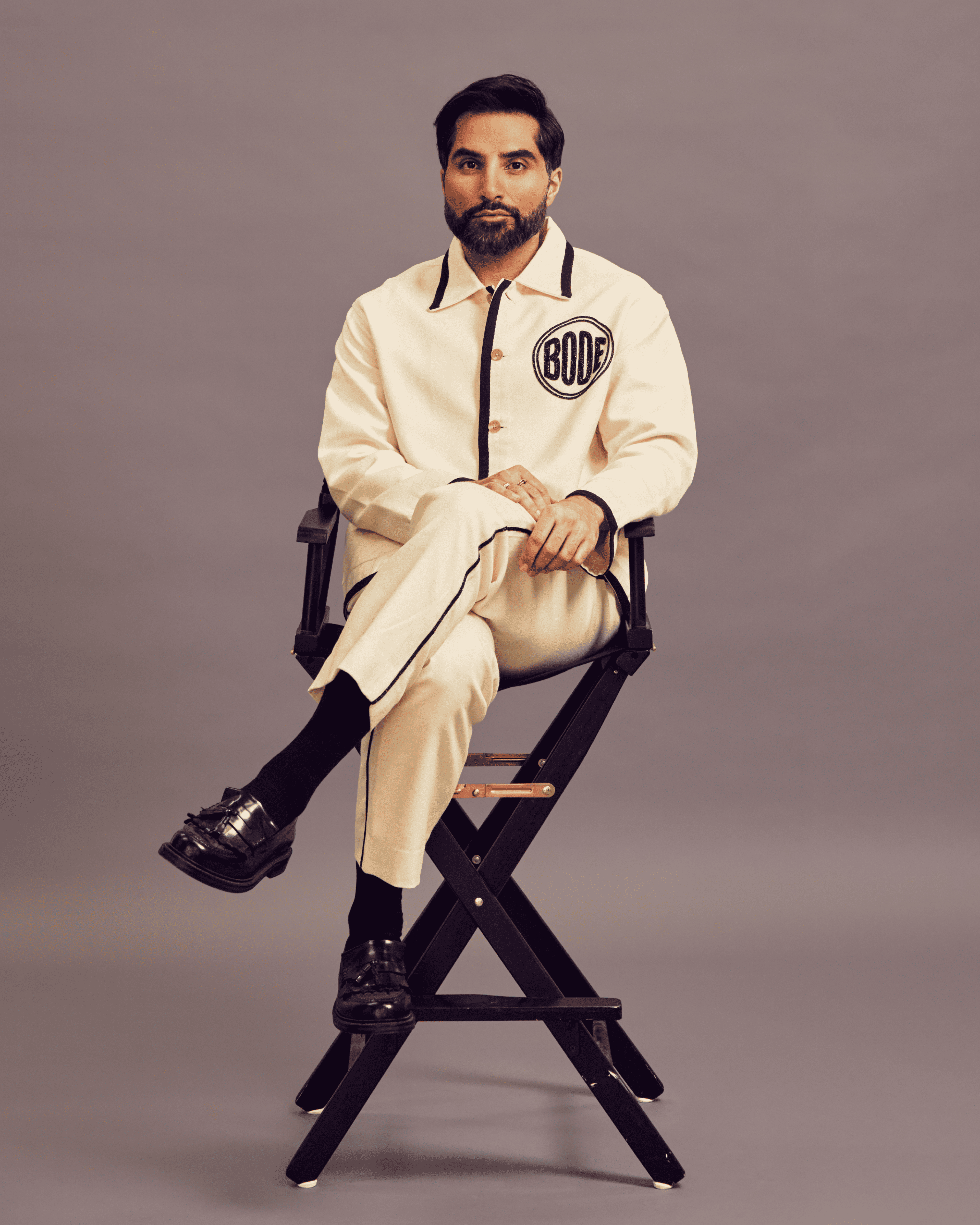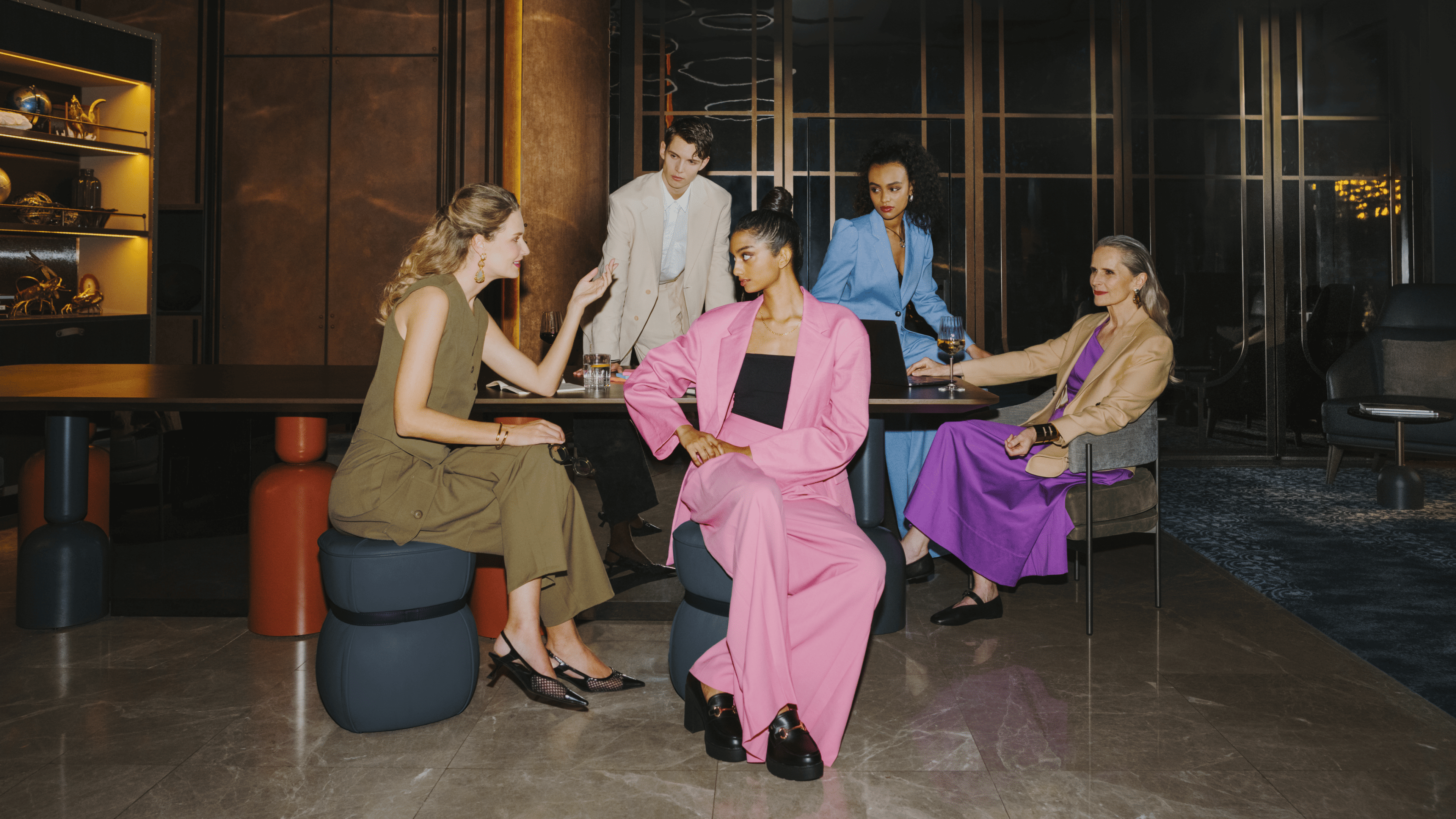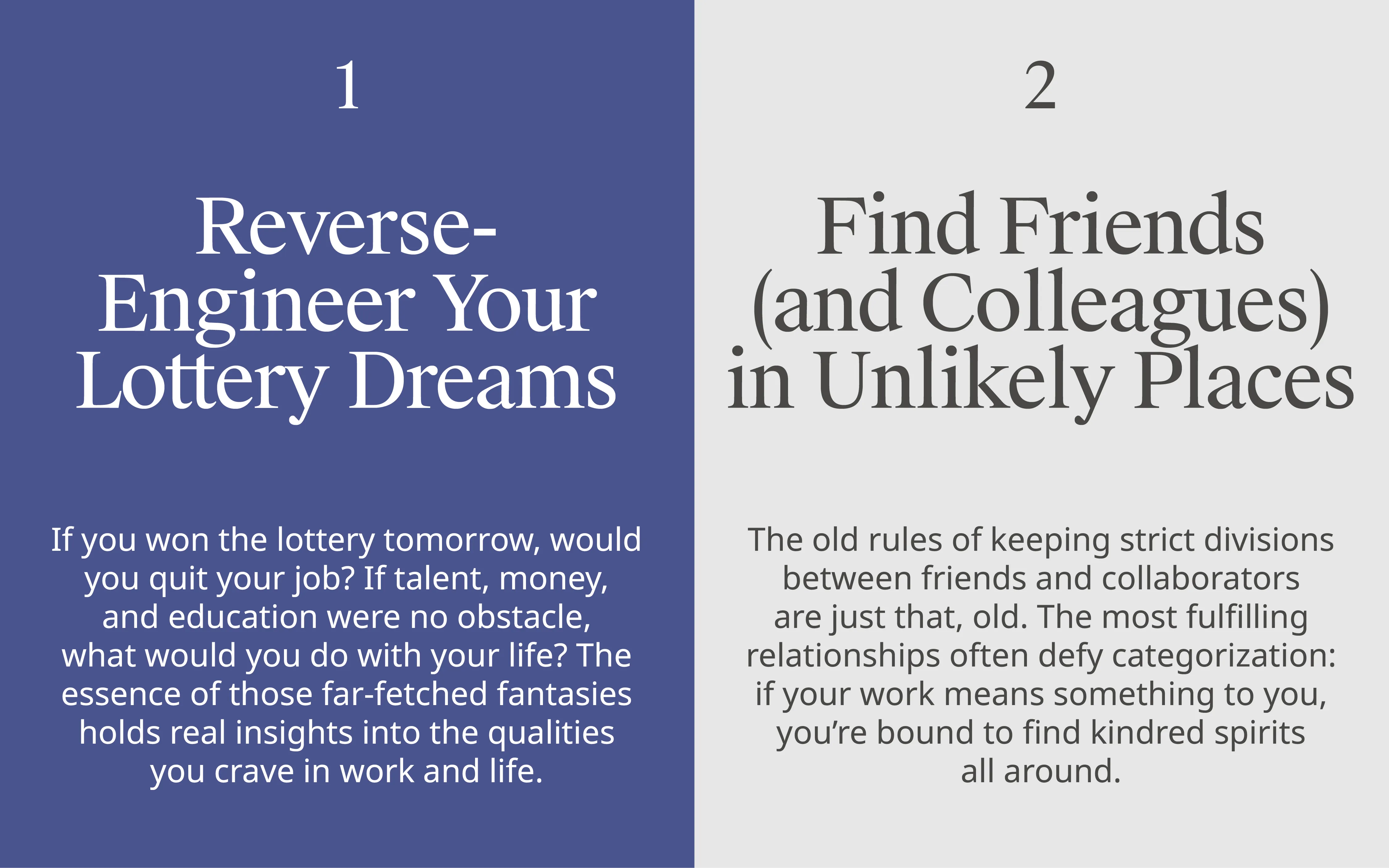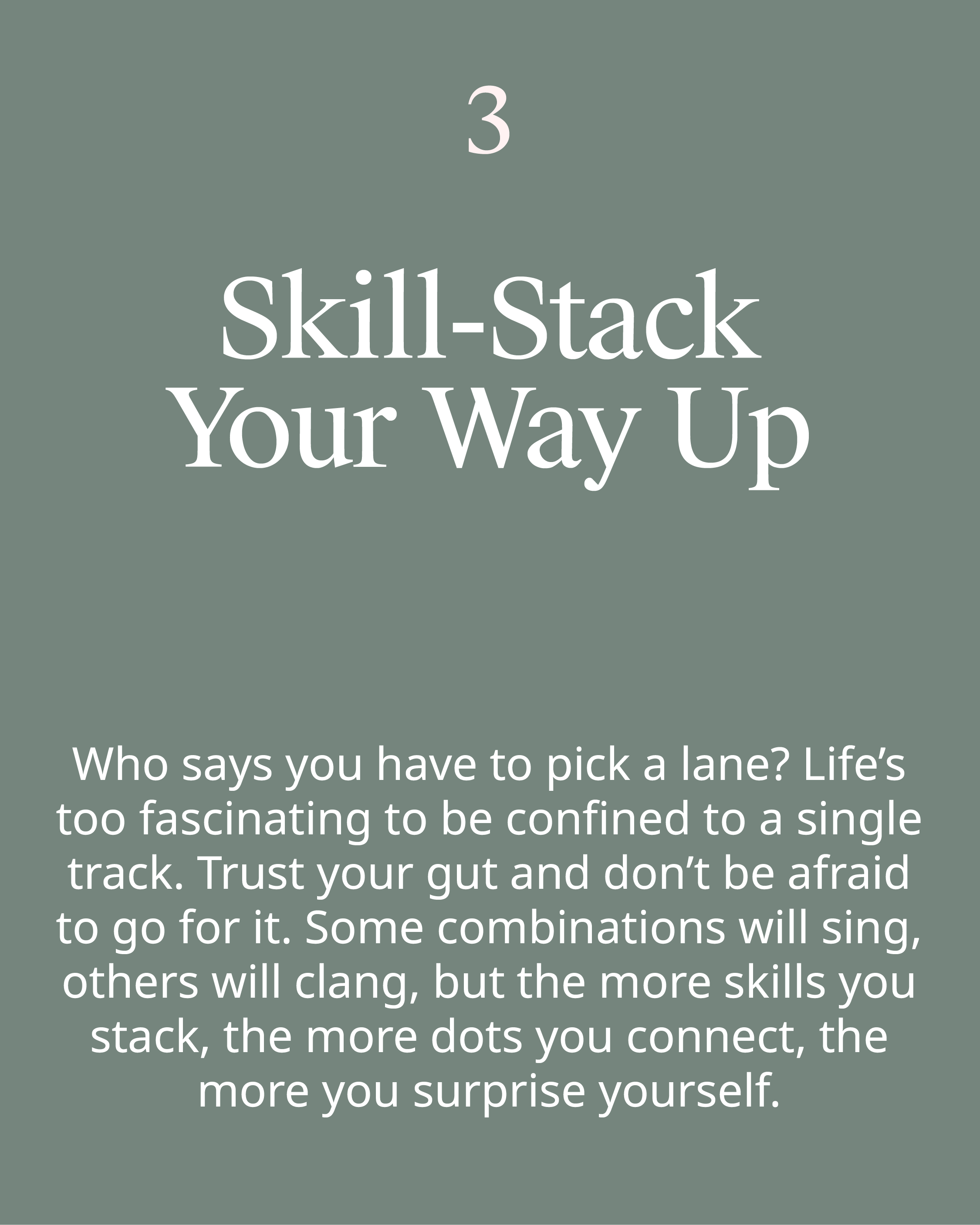An Arrow Points in One Direction
5min
An Arrow Points in One Direction
A Pullman Draft is an idea. A provocation. A spark for conversation and an invitation to think differently. Welcome to Pullman Drafts, a series of personal reflections with the House of Beautiful Business, featuring bold voices from business, culture, media, and technology.

Breaking down barriers between different parts of your life lets your energy drive toward a common goal, with insights from entrepreneur Akbar Hamid
Who needs the tussle between business and pleasure when your life flows in one direction? As more of us turn our passions into careers, the line between personal and professional is dissolving, creating space for more rewarding experiences, and connections that truly count.

I got hired at a rave. Well, almost.
Knowing that I was searching for a new gig, a friend tipped me off about the House of Beautiful Business, a think tank that allegedly threw dinners in abandoned palaces and strived to make the (business) world a better place. I was a little sceptical, but after an interview that involved hanging out at Berlin’s Tempelhofer Feld (an airport-turned public park) and dancing with staff members at an all-night rave, I knew I wasn’t dealing with an ordinary company. When the job offer came, I accepted without hesitating.
With that, I plunged headfirst into a world where people didn’t seem to make the conventional distinction between business and pleasure. I met artists, entrepreneurs, activists, and academics who saw no need to erect artificial walls between their passions and their professions. Among them was Akbar Hamid.
Akbar is a New York-based entrepreneur who operates at the crossroads of tech and culture, East and West, and business and pleasure. Being gay, South Asian, and Muslim, he decided at the outset of his career that there was no point in giving everything to his work if what he was giving didn’t reflect his full self. That ethos became the backbone of every project he’s since led, from founding his creative communications agency, The 5th Column (5C), to launching POC Lab, a gaming studio advancing inclusion in the Web3 space. Akbar’s latest venture is a film and production company that meets the growing demand for compelling queer narratives.
When I ask what motivated the turn from marketing to movies, Akbar says it’s all part of the same journey. “It’s always been about storytelling for me, whether I’m acting, producing a fictional drama, or putting together a campaign for Birkenstock. Stories are how I make sense of emotions, relationships—everything, really. My love affair with storytelling and creativity is what makes work and pleasure indivisible for me.”

We tell ourselves stories in order to live
Growing up in Pakistan, Akbar knew he didn’t fit the conventional mold. Feeling “different” wasn’t something he could explain or pinpoint, but it was amplified by the TV shows that played in his childhood living room, where there were never any characters he looked, or thought, or behaved like him. Then an epiphany came in the form of Mira Nair’s 2001 movie Monsoon Wedding—or,more specifically, in the form of a character in the film, the bride’s little brother, Varun.
“I saw myself on screen for the first time,” Akbar recalls. “Here was this tubby gay kid who wanted to hang out with the women and do henna. He was so entertaining. I recognized myself in him. I recognized what that meant in myfamily. I suddenly felt relevant. And that was critical for me, that’s when I came to terms with the fact that stories can really save people’s lives.”
Akbar realized that, in order to live authentically, there could be no neat line separating who he was from what he did. As his career progressed, he saw how much this was true for other people juggling different identities and responsibilities. “I’ve seen this with so many of the young moms at the agency,” Akbar tells me. “There was never any divide between work and life for them, because there couldn’t be. The demands of parenting made it impossible. Now, with workplaces becoming so much more representative of what society is actually like, our dreams, our cultures, our passions, our quirks are all showing up as essential, not extra.”

To work and to love, a recipe for living
Akbar’s blended lifestyle makes for an odd paradox: He’s always working, yet always at play. A beach vacation with friends might spark the idea for a new client campaign. Similarly, a professional meeting could sow the seeds for a deeply personal, enduring friendship. I ask whether it’s exhausting—the feeling of being “on” in some capacity all the time. He says it’s the opposite.
“Having one purpose across everything I do makes it so much easier to see what’s worth my time and energy, and what’s not. Knowing what I care about, and what will motivate me to go that extra mile, is the best protection against burnout. Burnout comes when you’re working on a project that isn’t really aligning with you—when you’re doing it for the clout or the revenue. It doesn’t happen when you’re chasing something that feels real.”
It didn’t surprise me to learn that Akbar doesn’t draw a hard line between working and socializing. In fact, he met one of his closest friends, a creative designer based in Manhattan, at an industry conference in Sante Fe, New Mexico. “We were both looking at the same campaign and mumbling about its, well … shortcomings,” he says with a laugh. Their conversation turned into a witty, critical takedown of everything this brand was doing wrong. Over drinks that night, they discovered their artistic affinity went deeper; they liked the same concepts, companies, styles, and celebrities. They even had a preference for the same fonts. “It just feels so natural, we’re great pals,” Akbar says. “But I also really admire and respect his creativity. I’m just waiting for the right project for us to join forces and collaborate.”
Akbar’s story underscores what I’ve learned these past few years at my own job: Work can be a place where you show up as yourself, quirks and all, whether or not that means dancing until dawn at a Berlin rave. Now friends come to me for tips on how to lead more integrated lives. I get a kick out of how swiftly the tables have turned, but I also enjoy providing ideas and insights that can help change how they work and how they rest. Here are a few prompts I like to share:
- Reverse-engineer your daydreams. If you won the lottery tomorrow, would you quit your job? If talent, money, and education were no obstacle, what would you do with your life? The essence of those far-fetched fantasies holds real insights into the qualities you crave in work and life. Whether you dreamed of fame and fortune, intellectual adventure, or the humble rewards of helping others, there’s a clear thread connecting that vision to what motivates you most. Do those motivators exist in your current work? In your hobbies? If not, find ways to pull them in, whether by taking on a pro bono side project or steering your career in a direction that genuinely excites you.
- Find friends (and colleagues) in unlikely places. The old rules of keeping strict divisions between friends and collaborators are just that, old. The barista who makes your latte might be a budding filmmaker, and the person next to you at the gym might be a potential investor. The most fulfilling relationships often defy categorization. If your work means something to you, you’re bound to find kindred spirits all around.
- Skill-stack your way up. Who says you have to pick a lane? Life’s too fascinating to be confined to a single track. Design websites that recite haikus. Write code that bakes sourdough. Build financial models with origami. Lead meetings like it’s improv comedy. Trust your gut and don’t be afraid to go for it. Some combinations will sing, others will clang, but the more skills you stack, the more dots you connect, the more you surprise yourself and understand your potential.


***
Akbar Hamid is a Forbes Next 1,000 honoree who has established a reputation as a visionary marketing and communications thought leader in a digital-first world. As founder & CEO of creative consultancy The 5th Column (5C) and 5Crypto, as well as co-founder of People of Crypto Innovation Lab (POC Lab), he focuses on bringing diverse and inclusive cultural storytelling to the web3 and metaverse space, enabling brands to bridge the gap between consumer and web3. He operates at the intersection of business and culture to deliver transformational work to global clients.
Dima Samarin is a Berlin-based storyteller and brand strategist. He heads marketing at the House of Beautiful Business, a global community dedicated to creating a life-centered economy, and runs Mitte Daily,a hyperlocal platform centered around collective myth-making. With a career spanning work for the world’s leading brands like Google and Coca-Cola, as well as small businesses and non-profits, Dima specializes in crafting narratives that resonate.
External link
By clicking on this link you will be transferred to a third-party website.
Follow the link